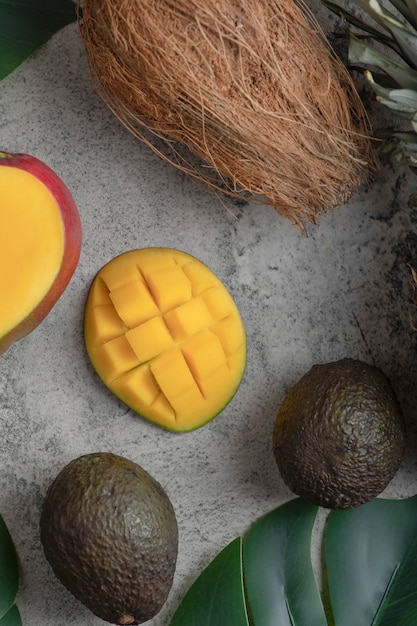
Nowadays, many ads promote slimming products boasting African mango extracts — but what’s all the buzz about? If you’ve ever wondered why these products make such claims, here’s the lowdown on African mango and its potential role in weight loss.
Known scientifically as Irvingia gabonensis, African mango is a fruit native to the rainforests of West Africa. Unlike the sweet mangoes commonly found in grocery stores, this wild fruit belongs to a different plant family, and it’s the seed, not the flesh, that’s the star ingredient in many weight loss supplements. For years, the local tribes have used these seeds, often called Dika nuts, for medicinal purposes. Recently, studies suggest that extracts made from these seeds might assist with weight loss by improving blood fat levels, cholesterol, and leptin — a hormone linked to appetite regulation and fat storage.
### What Makes African Mango Unique?
The seeds of the African mango are nutrient-rich and have a taste similar to regular mangoes, though they serve a very different purpose. Once dried and ground into powder, these seeds are used in a variety of ways, from making bread to creating capsules, liquids, and powders marketed as slimming aids. The soluble fiber found in these seeds binds with fat and bile acids in the gut, reducing cholesterol and supporting a healthy metabolism.
### Research Findings
Scientific studies have explored the impact of Irvingia gabonensis on weight loss and overall health. One significant study in 2005 involved 40 obese participants. Half of the group received African mango extracts, while the other half was given oat bran as a placebo. Over four weeks, the African mango group lost an average of 5.3% of their body weight, showed considerable reductions in waist and hip measurements, and experienced improved cholesterol levels. Another study in 2009 expanded on these findings with 102 participants, further cementing its potential as a slimming agent. However, it’s worth noting that these studies were often sponsored by supplement companies, which raises questions about their impartiality.
### How It Works
African mango seeds act like water-soluble fibers, slowing the absorption of glucose into the bloodstream. This process helps regulate insulin levels, preventing spikes and crashes while supporting fat metabolism. Additionally, these fibers bind to bile acids, prompting the body to produce more bile by breaking down cholesterol, thus lowering blood fat levels. The seeds essentially act as natural laxatives, encouraging the digestive system to move more efficiently.
### Uses Beyond Weight Loss
The African mango tree offers benefits beyond its seeds. Its fruit pulp is used to make jams, jellies, juices, and even wine. The seeds, meanwhile, are pressed for oils used in cooking and beauty products like cosmetics and soaps. Even the tree itself is valuable in agriculture, providing shade for crops like coffee and cocoa, while its dried branches are used as fuel by local communities.
### Effectiveness for Weight Loss
African mango has gained attention in the slimming supplement market, with some studies suggesting that consuming 150 mg of seed extract twice daily can lead to noticeable weight loss. In addition to shedding pounds, it may improve cholesterol, blood sugar levels, and hormone markers like leptin and adiponectin, often without requiring significant dietary or lifestyle changes. However, its unique ability to reduce lipids may make it stand out among other natural weight-loss aids.
### Is It Worth Trying?
While African mango shows potential, it may not deliver the dramatic results often advertised. It could be a helpful addition to your diet if you’re looking for gradual, natural weight loss without extreme dieting or exercise. But don’t expect a miracle fix overnight. Everyone’s body reacts differently, so some trial and error may be necessary to see if it works for you. Furthermore, research on its long-term effects and safety is still limited, so it’s wise to proceed with caution.
### Side Effects
Being a natural product, African mango generally has mild side effects, but it’s still essential to be aware of possible reactions. These include headaches, dry mouth, bloating, and occasional difficulty sleeping. The high-fiber content of the seeds may lead to digestive discomfort, while changes in metabolism during weight loss may affect sleep patterns.
### Final Notes
African mango, specifically its seed extract, is a promising addition to the weight-loss landscape. It assists in lowering cholesterol, improving fat metabolism, and aiding gradual weight loss. Its natural properties make it a potentially safer option compared to chemical-based slimming products. Yet, with limited scientific research and minor side effects to consider, it’s best to approach this supplement as a complementary tool rather than a guaranteed solution. And as always, balance is key — pair it with a healthy diet and lifestyle for the best results.